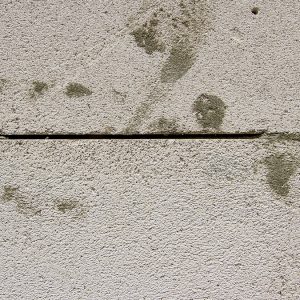Do concrete joints need to be sealed?
Water-resistant concrete is designed to withstand water exposure, but only if it is functioning properly. Joints are common fail points in water-resistant concrete, especially when they are not sufficiently sealed. Water infiltration can rust the rebar supporting the concrete and erode the structure from within. With concrete joint sealing, you can bypass these issues and protect the integrity of the concrete structure.

Common types of concrete joints
There are several types of concrete joints, each with a unique function:
- Expansion joint: Expansion joints are strategically placed to accommodate concrete expansion. They’re designed to control where concrete cracking occurs and protect the slab as a whole.
- Construction joint: Construction joints are borders between different concrete pours.
- Full-depth contraction joint: Full-depth concrete joints go through the entire thickness of a piece of concrete. They allow for shrinkage to occur and can help reduce cracking during expansion.
- Dummy joint: A dummy joint is designed to crack. It directs forces that would cause concrete cracking elsewhere into an area that is already sealed.
Concrete joints serve different purposes, but they all work toward a common goal. When installed correctly, joints can extend the lifespan of concrete and reduce the need for repair. Joint sealing is a necessary step to ensure these weak points perform successfully.
Joint placement impacts the longevity of the concrete
Joint placement is a fundamental part of concrete design. This is not a step that can wait until the end. The joints must be thoughtfully placed in order to support expansion and contraction. The designer, contractor or engineer must put the right joints in the right places to protect the concrete structure. Make sure you’re working with an experienced professional to avoid issues in the future.
How to seal joints in water-resistant concrete
Joint sealant steps vary based on the type of joint, where it is located, and the purpose of the sealing. For instance, a concrete joint that has experienced significant expansion may need to be filled and repaired prior to sealing. The concrete experts here at JK Industries can evaluate your concrete and recommend the appropriate methods and materials for sealing. Give us a call to schedule your in-person consultation.
